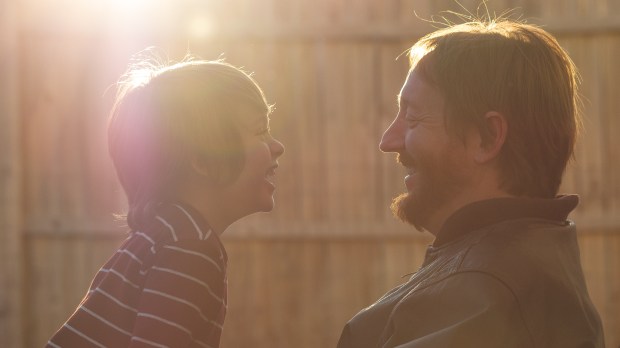I strongly take issue with Gregory Popcak’s description of autism. According to him, autistic people’s brains “tend to see people the same way they see objects. They aren’t good at picking up or even appreciating the need for emotions and emotional cues.” This is far too sweeping a generalization of the varied world of autism. Using such broad and inaccurate brushstrokes, Popcak paints autistic people as somehow deficient in their humanity. He claims that because they are incapable of seeing other people as fellow human beings, they fixate on hobbies and routines instead of forging relationships. This is far from the truth. If anything, autistics feel things too deeply, including other people’s emotions. The bombardment of their senses and emotions can cause them either to melt down or shut down at times, but it’s certainly not because they are disinterested in people.
As the father of six children on the autism spectrum, I can assure you that autistic people are quite capable of developing relationships. Every one of my children knows I love them, and they all love me back. We exchange hugs and kisses; we joke together; we enjoy each other’s company. We even disagree and get into fights sometimes—just like everyone else. Judging from all of the friends I have who are either autistic or who have an autistic person in their lives, I know that I am far from alone.
Popcak seems to be relying on long-outdated interpretations of autism—interpretations that led doctors decades ago to institutionalize or overmedicate autistic people. “There’s nothing we can do,” they would tell an autistic child’s parents. “He will never have a full life. Don’t burden yourself. Just put him away and move on.” Thankfully, this line of thinking has long been set aside for a more accurate view that sees autistics as different, not less, as people with different neurologies than their “neurotypical” peers, not as psychologically damaged. I suggest that Popcak read more up to date descriptions of life on the autism spectrum. Books like Look Me in the Eye by Jon Robison, NeuroTribes by Steve Silber, or Thinking in Pictures by Temple Grandin offer a fuller, more accurate, and more positive description.
I also find Popcak’s use of the term “spiritual autism” to describe something that has “infected” the Church unfortunate. Even if we were to disregard his inaccurate descriptions of autistic people, that one word—infected—undermines his statement that he isn’t using the term pejoratively. Autism is not a disease and it is not contagious.
A Spiritual False Dichotomy.
Just as he creates a false dichotomy between autistic and non-autistic people, Popcak creates a false dichotomy in his description of Catholic spirituality. He promotes a spiritual model that “begins with an emotional relationship with God and others but is deepened and facilitated by ritual, rubrics, and rites.” He isolates the encounter with Christ from the rituals and rubrics of the liturgy. Such a narrow “either-or” description is foreign to the holistic “both-and” universe that is Catholic theology and philosophy. Ritual doesn’t follow encounter. It doesn’t just deepen and facilitate it, as if encounter happens somewhere else. Ritual is meant to be the very locus of encounter. It may not be the only way to encounter Christ, but it is one of the most powerful ways. That’s one reason why we call the Eucharist the source and summit of the Christian life.
Here again we enter a place where Popcak’s term “spiritual autism” paints a negative picture of autistic people. By using it to describe a supposed deficiency in the Church, Popcak gives the impression that autistic people are somehow lacking in their capacity to forge a relationship with God. Again, this is not true, and it implies that autistic people are not capable of or interested in any kind of communion of souls. Created in the image of God, who is a communion of Persons, people with autism surely are capable of interaction and communion. Ask any parent or spouse of an autistic individual (and there are many), and they will tell you. Ask any priest who has offered spiritual direction to or heard the confession of an autistic individual (and they are many), and you will see just how loving and spiritual people on the autism spectrum can be.
Leo Zanchettinis editor of The Word Among Us magazine and maintains a blog on autism parenting at (www.autismblues.worpress.com).
Editor’s note: In response to Leo Zanchettin, Dr. Popcak has written this clarification and apology concerning his original article which is posted on his blog at Patheos.

